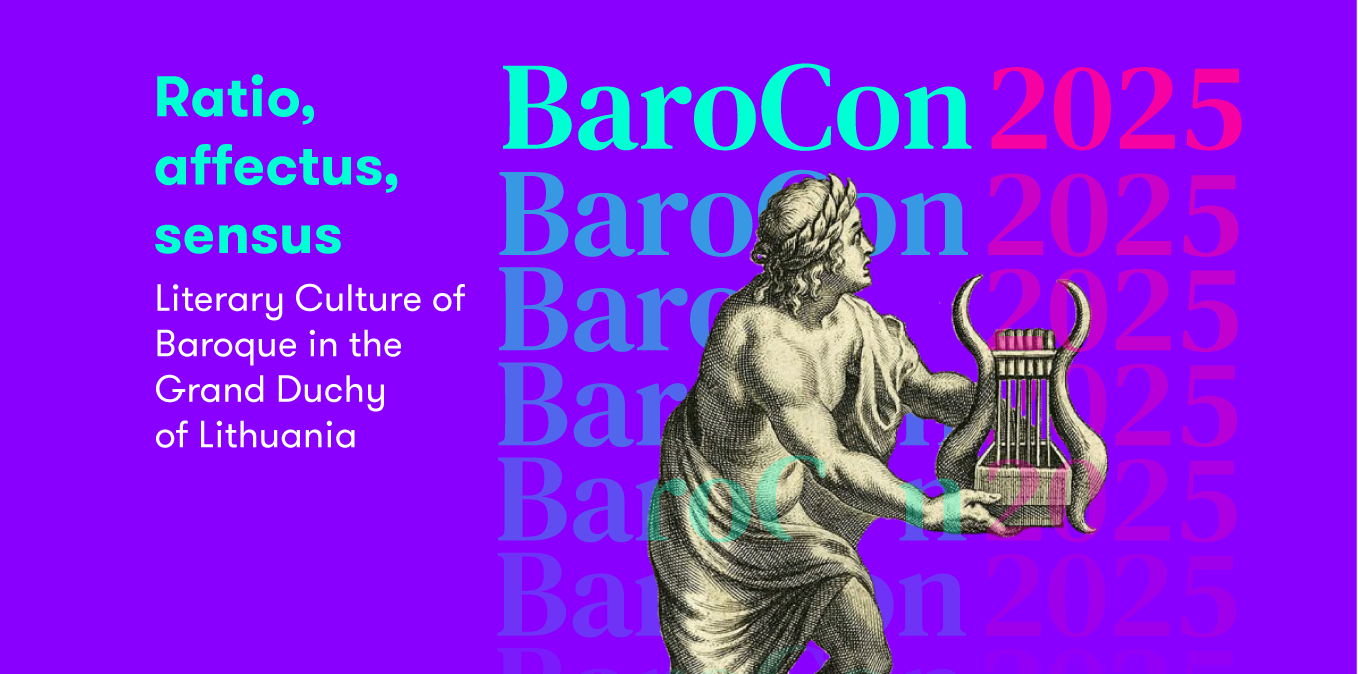Ratio, affectus, sensus: Literary Culture of the Baroque in the Grand Duchy of Lithuania
In 2025, we will commemorate the 400th anniversary of the first publication of Matheus Casimirus Sarbievius' most famous Latin poetry collection 'Lyricorum libri tres' (1625). This has led to 2025 being declared the Year of Baroque Literature in Lithuania. The eminent Jesuit neo-Latin poet of the Polish-Lithuanian Commonwealth, Sarbievius, has been hailed as the Christian Horace and the Sarmatian Horace. His theoretical thoughts on poetry and rhetoric are still highly regarded and have inspired new research on other concurrent themes and authors. This anniversary provides an opportunity to explore the extent and diversity of Baroque literary culture, which has seen a surge of interest in recent decades, both in the academic world and in popular culture. Therefore, the Institute of Lithuanian Literature and Folklore, together with the Faculty of Philology of Vilnius University, is organising an international academic conference "Ratio, affectus, sensus: Literary Culture of the Baroque in the Grand Duchy of Lithuania" on 25-27 September 2025 in the baroque city of Vilnius.
The aim of the multidisciplinary conference is to stimulate discussion on the literary culture of the "long seventeenth century" (from the end of the 16th century to the middle of the 18th century) in the Grand Duchy of Lithuania. This historical period, associated with dramatic changes and a general cultural crisis, is often described in contradictory terms and in constant tension between reason and senses, rigid structure and passions, classifications and impressions, etc. By embracing this contradiction, we invite an exploration of the theme in question through the lens of this dynamic interplay between reason (ratio), emotion (affectus) and the senses (sensus), which can be perceived in various genres of the period, such as poetry, biography, hagiography, rhetoric, private and public correspondence, and so on. The importance of the modern approach lies not only in what it can reveal about the Baroque in the Grand Duchy of Lithuania, but also about subsequent and contemporary literary culture, as scholars have demonstrated the continuing influence of a 'Baroque spirit'.
Event location
25–26 September the conference will take place at V. Krėvė (118) auditorium, Faculty of Philology
27 September the conference will take place at the Church Heritage Museum, Šv. Mykolo g. 9 (entrance from Maironio g. "Arkangelo konferencijų centras")
Keynote speakers

Ona Dilytė-Čiurinskienė
Senior Researcher, The Institute of Lithuanian Literature and Folklore
Prof Stephen Harrison
Professor of Latin literature, University of Oxford
Emilija Jovaišaitė-Martišauskienė
Sarbievius in England: in search of the reader
Emilija Jovaišaitė-Martišauskienė
University College London
Sarbievius in England: in search of the reader
This paper aims to introduce and discuss the materiality of Matthias Casimirus Sarbievius's works that I encountered in the British libraries. Significant work has already been done on Sarbievius and his popularity in the British Isles; however, little attention has heretofore been paid to the reception of this author in terms of the history of the book. A closer analysis of some interesting material features provides insight and contributes to our understanding of Sarbievius's reader circle, namely, who his readers were, what they found significant, and what the purposes of reading Sarbievius's poetry were. Therefore, special focus will be paid to a copiously annotated copy of Lyricorum libri IV (printed in Antwerp, by Balthasar Moret in 1632, held at the British Library), which also contains a handwritten alphabetical index of Sarbievius's topoi. However, I would also like to address some interesting material features of the first English translation of the poet's work ("The Odes of Casimire", printed in London by T. W. for G. Hills, 1646) and illustrate how they adapt the 'Sarmatian' poet to the broader English historical context.


